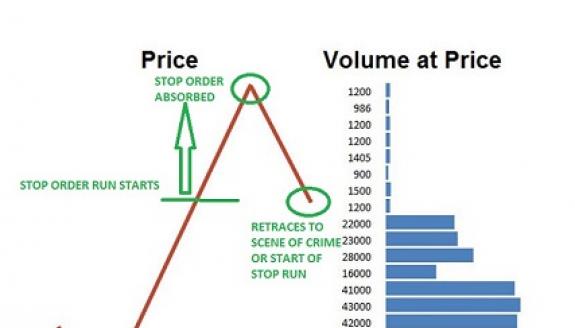
Forex trading can be risky but if you use a strategy and have enough capital, you can make a decent income. Before you start trading Forex, though, you'll want to know exactly how much money you'll need to start trading. Your trading style and your personal circumstances will determine the amount of money you need. Also, you need to think about the possibility of losing your capital as well as how much money you can afford.
You should aim to invest at least 1% of your account in each trade. But if you're trading using a leveraged product, you'll need more like 5% to 15% of your account to make the most of your investments. A good way to make sure you don't lose your money is to set a stop-loss order. When a broker orders a stop-loss order, you're telling the brokerage that you want to close out your trade at a certain price. You may consider switching brokers if you have an account that requires you to deposit a minimum amount to place a stop-loss trade.

To determine how much money it will cost to trade forex, you need to know how much you are willing to risk. This will allow you to trade at the right level of risk, and make your trades more confident. But even the best traders may have bad days. So don't expect that you will make millions every day. To be prepared for losses, save a little cash in a savings account.
Find a forex broker who offers a free demo account if you are interested in forex trading. You can learn more about forex currencies and different trading strategies by opening a free demo account. A demo account is a free way to test your trading strategies before you put any real cash at risk. Using a demo account allows you to practice various forex trading strategies without risking any of your own cash.
To figure out how much money it will cost to trade Forex, you need to consider your trading style and your life circumstances. Start with at least $500 if you plan to trade forex for a living. However, if you want to do currency trading as an investment, at least $3000 will be required. It's not much but you can generate modest income if you do it correctly.

You should also consider taking trading classes. Many brokers offer classes, and a well-taught class can speed your learning curve. A teacher who is knowledgeable will be able point you in the right direction for your trading style.
FAQ
How do I invest on the stock market
Brokers are able to help you buy and sell securities. A broker can sell or buy securities for you. Trades of securities are subject to brokerage commissions.
Brokers usually charge higher fees than banks. Banks will often offer higher rates, as they don’t make money selling securities.
A bank account or broker is required to open an account if you are interested in investing in stocks.
A broker will inform you of the cost to purchase or sell securities. Based on the amount of each transaction, he will calculate this fee.
Ask your broker:
-
To trade, you must first deposit a minimum amount
-
What additional fees might apply if your position is closed before expiration?
-
what happens if you lose more than $5,000 in one day
-
How many days can you keep positions open without having to pay taxes?
-
How much you are allowed to borrow against your portfolio
-
Transfer funds between accounts
-
How long it takes to settle transactions
-
The best way for you to buy or trade securities
-
How to Avoid Fraud
-
how to get help if you need it
-
How you can stop trading at anytime
-
Whether you are required to report trades the government
-
Reports that you must file with the SEC
-
Do you have to keep records about your transactions?
-
Whether you are required by the SEC to register
-
What is registration?
-
How does it affect me?
-
Who must be registered
-
What time do I need register?
What is the difference between a broker and a financial advisor?
Brokers are individuals who help people and businesses to buy and sell securities and other forms. They handle all paperwork.
Financial advisors have a wealth of knowledge in the area of personal finances. They help clients plan for retirement and prepare for emergency situations to reach their financial goals.
Banks, insurance companies or other institutions might employ financial advisors. They may also work as independent professionals for a fee.
Consider taking courses in marketing, accounting, or finance to begin a career as a financial advisor. You'll also need to know about the different types of investments available.
Is stock marketable security?
Stock is an investment vehicle that allows you to buy company shares to make money. This can be done through a brokerage firm that helps you buy stocks and bonds.
You could also choose to invest in individual stocks or mutual funds. There are more mutual fund options than you might think.
There is one major difference between the two: how you make money. Direct investment allows you to earn income through dividends from the company. Stock trading is where you trade stocks or bonds to make profits.
In both cases, ownership is purchased in a corporation or company. However, if you own a percentage of a company you are a shareholder. The company's earnings determine how much you get dividends.
Stock trading allows you to either short-sell or borrow stock in the hope that its price will drop below your cost. Or you can hold on to the stock long-term, hoping it increases in value.
There are three types to stock trades: calls, puts, and exchange traded funds. Call and Put options give you the ability to buy or trade a particular stock at a given price and within a defined time. ETFs, which track a collection of stocks, are very similar to mutual funds.
Stock trading is very popular because investors can participate in the growth of a business without having to manage daily operations.
Stock trading is not easy. It requires careful planning and research. But it can yield great returns. To pursue this career, you will need to be familiar with the basics in finance, accounting, economics, and other financial concepts.
Who can trade in stock markets?
The answer is everyone. All people are not equal in this universe. Some people have more knowledge and skills than others. They should be recognized for their efforts.
But other factors determine whether someone succeeds or fails in trading stocks. If you don’t have the ability to read financial reports, it will be difficult to make decisions.
You need to know how to read these reports. It is important to understand the meaning of each number. Also, you need to understand the meaning of each number.
Doing this will help you spot patterns and trends in the data. This will allow you to decide when to sell or buy shares.
And if you're lucky enough, you might become rich from doing this.
How does the stock markets work?
Shares of stock are a way to acquire ownership rights. A shareholder has certain rights. He/she is able to vote on major policy and resolutions. The company can be sued for damages. He/she may also sue for breach of contract.
A company cannot issue shares that are greater than its total assets minus its liabilities. This is called "capital adequacy."
A company that has a high capital ratio is considered safe. Companies with low capital adequacy ratios are considered risky investments.
What is the difference between the securities market and the stock market?
The entire list of companies listed on a stock exchange to trade shares is known as the securities market. This includes options, stocks, futures contracts and other financial instruments. There are two types of stock markets: primary and secondary. Stock markets are divided into two categories: primary and secondary. Secondary stock market are smaller exchanges that allow private investors to trade. These include OTC Bulletin Board, Pink Sheets and Nasdaq SmallCap market.
Stock markets are important as they allow people to trade shares of businesses and buy or sell them. The value of shares is determined by their trading price. A company issues new shares to the public whenever it goes public. Dividends are received by investors who purchase newly issued shares. Dividends refer to payments made by corporations for shareholders.
Stock markets are not only a place to buy and sell, but also serve as a tool of corporate governance. Boards of directors are elected by shareholders to oversee management. They ensure managers adhere to ethical business practices. If a board fails in this function, the government might step in to replace the board.
What is the role of the Securities and Exchange Commission?
The SEC regulates securities exchanges, broker-dealers, investment companies, and other entities involved in the distribution of securities. It enforces federal securities laws.
Statistics
- Individuals with very limited financial experience are either terrified by horror stories of average investors losing 50% of their portfolio value or are beguiled by "hot tips" that bear the promise of huge rewards but seldom pay off. (investopedia.com)
- Our focus on Main Street investors reflects the fact that American households own $38 trillion worth of equities, more than 59 percent of the U.S. equity market either directly or indirectly through mutual funds, retirement accounts, and other investments. (sec.gov)
- Even if you find talent for trading stocks, allocating more than 10% of your portfolio to an individual stock can expose your savings to too much volatility. (nerdwallet.com)
- For instance, an individual or entity that owns 100,000 shares of a company with one million outstanding shares would have a 10% ownership stake. (investopedia.com)
External Links
How To
How to create a trading plan
A trading plan helps you manage your money effectively. It allows you to understand how much money you have available and what your goals are.
Before setting up a trading plan, you should consider what you want to achieve. You may wish to save money, earn interest, or spend less. You might want to invest your money in shares and bonds if it's saving you money. You could save some interest or purchase a home if you are earning it. And if you want to spend less, perhaps you'd like to go on holiday or buy yourself something nice.
Once you have an idea of your goals for your money, you can calculate how much money you will need to get there. This depends on where your home is and whether you have loans or other debts. Consider how much income you have each month or week. Income is the sum of all your earnings after taxes.
Next, make sure you have enough cash to cover your expenses. These include rent, food and travel costs. All these things add up to your total monthly expenditure.
The last thing you need to do is figure out your net disposable income at the end. This is your net discretionary income.
Now you've got everything you need to work out how to use your money most efficiently.
You can download one from the internet to get started with a basic trading plan. Ask an investor to teach you how to create one.
Here's an example: This simple spreadsheet can be opened in Microsoft Excel.
This shows all your income and spending so far. This includes your current bank balance, as well an investment portfolio.
Here's another example. This was created by an accountant.
It will help you calculate how much risk you can afford.
Don't attempt to predict the past. Instead, you should be focusing on how to use your money today.